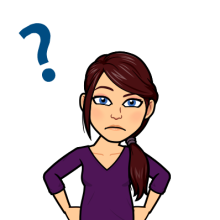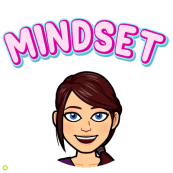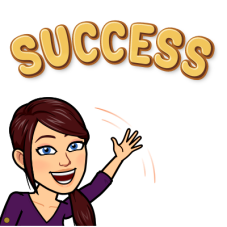In the past few weeks, I’ve written two posts focused on communication: Smart People Who Disagree With You and Talking to People You Disagree With. Both posts have touched on the importance of listening, which is critical not just in disagreements, but in any kind of communication.
Today, I want to dig a little deeper into listening and offer you three key focus points to help you be more effective.
Message
 The other night I heard a politician I strongly dislike say something I completely agreed with. My first thought was, “Ugh. I can’t believe I’m agreeing with this person.” My second thought was, “Clearly this person doesn’t mean that. They’re just saying it for political purposes.” Luckily, my third thought was, “What the heck is wrong with me?” Our knee jerk reaction to a disliked messenger is to immediately dislike, disregard, or disbelieve the message. In the same way, we tend to respond positively to a message shared by someone we like, admire, or respect.
The other night I heard a politician I strongly dislike say something I completely agreed with. My first thought was, “Ugh. I can’t believe I’m agreeing with this person.” My second thought was, “Clearly this person doesn’t mean that. They’re just saying it for political purposes.” Luckily, my third thought was, “What the heck is wrong with me?” Our knee jerk reaction to a disliked messenger is to immediately dislike, disregard, or disbelieve the message. In the same way, we tend to respond positively to a message shared by someone we like, admire, or respect.
Don’t get me wrong: the source is important. Credibility and context matter. However, we always have to make sure we hear and evaluate the actual message by focusing first on what they’re actually saying. Otherwise, we’re a disservice to the speaker and to ourselves. My current boss, who I adore, can (and sometimes does) have a bad idea, and a previous supervisor, who I disliked intensely, had a fair number of good ideas. During his tenure the importance of listening to the message was critical for me, because several times my complicated feelings about him as a person came very close to negatively impacting my job performance.
Meaning
 People often speak in shorthand, catchphrases, and buzzwords. That isn’t inherently a bad thing, as it can quickly and easily convey a complex idea. However, as a listener it’s important to make sure that you understand exactly what is behind the slogan, soundbite, or jargon. For example, this post by the Newman Group explains how easily corporate buzzwords can be misunderstood during job interviews. I’ve also seen situations where people waste a lot of time because they have different understandings of what they’re being asked to do. Thinking about the meaning is also important if you’re following politics and current events. During the COVID pandemic, for example, there have been a lot of misunderstandings about the specific meaning of terms like “flattening the curve”, “waves” versus “peaks”, and so on.
People often speak in shorthand, catchphrases, and buzzwords. That isn’t inherently a bad thing, as it can quickly and easily convey a complex idea. However, as a listener it’s important to make sure that you understand exactly what is behind the slogan, soundbite, or jargon. For example, this post by the Newman Group explains how easily corporate buzzwords can be misunderstood during job interviews. I’ve also seen situations where people waste a lot of time because they have different understandings of what they’re being asked to do. Thinking about the meaning is also important if you’re following politics and current events. During the COVID pandemic, for example, there have been a lot of misunderstandings about the specific meaning of terms like “flattening the curve”, “waves” versus “peaks”, and so on.
With any message, but especially with shorthand messages, you need to ask yourself two questions. First, does it have a universal meaning you understand? Second, are you sure that meaning is the same thing the speaker is trying to convey? Slogans and titles are great conversational shorthand, if everyone is clear on what they mean. If you aren’t 100% sure, dig a little deeper, through asking questions or doing a little bit of research.
Mindset
 A big part of effective listening is how you approach it. Hearing is passive, but listening is active, and it starts with your attitude. The way you mentally frame what you’re doing makes a huge difference in how effective you’ll be. If all you’re looking for is something that will confirm your existing beliefs, give you something to be angry about, or give you something to mock, you aren’t going to be able to fully consider the message or the meaning. Set objectives for yourself, be mindful of those objectives, and hold yourself accountable. Here’s the attitude I try to maintain while listening:
A big part of effective listening is how you approach it. Hearing is passive, but listening is active, and it starts with your attitude. The way you mentally frame what you’re doing makes a huge difference in how effective you’ll be. If all you’re looking for is something that will confirm your existing beliefs, give you something to be angry about, or give you something to mock, you aren’t going to be able to fully consider the message or the meaning. Set objectives for yourself, be mindful of those objectives, and hold yourself accountable. Here’s the attitude I try to maintain while listening:
I want to learn. I want to understand. I want to make the best decisions. I am open to all possible outcomes.
Depending on the situation, I might add to those goals, or tweak them a little, but that general focus helps me stay engaged, clearly understand, and thoughtfully evaluate what I’m hearing.

Are there challenges you face in communication, or strategies you use for effective listening? Let me know in the comments!

I like the 3 M’s idea, this really helps. Thank you!
LikeLiked by 1 person
I like to arrange things using mnemonic devices whenever possible, because they always help me remember.
LikeLiked by 1 person
Nice!
LikeLiked by 1 person
I’m sorry, did you say something? 🤔
LikeLiked by 1 person
All right, you. Lol. 😉
LikeLiked by 1 person
Lol!!! Good points Ananda!
LikeLiked by 1 person
All good points, Amanda. In listening carefully, we can often determine if the speaker is a true believer or simply drank the Kool-Aid. I recall having a discussion with a co-worker, who all of a sudden started speaking in jargon I had heard before. I gently said to her, “Ahhhh, I’ve taken that course too”. We both laughed and went back to honest conversation. I recall my employer’s big jargon campaigns…”working smarter, not harder” (what are you telling me, that I’ve been working stupid all these years?) “Doing more with less”.(yeah, but Les never shows up for work)….”on a going forward basis” (what does this even mean”?) Sometimes we get so caught up in the Corporate message that the speakers simply spout it out without believing it and the listeners simply block it out. We can all be better communicators. Thanks for reminding us of that. Hope all is well Amanda. Allan
LikeLiked by 1 person
I will never forget a large training/work session I participated in about five years ago. After ten minutes of information and jargon dense instructions, our small groups broke out to spend an hour on a particular task. When we go back together, we discovered that 1) Every group had spent at least a quarter of the time trying to figure out exactly what they were supposed to be doing and 2) Every group had done something at least slightly different. Frustrating, but eye opening.
LikeLiked by 1 person
Good mmmmmmmmmmmmmmmmmm’s!
LikeLiked by 1 person
Thank you. 🙂
LikeLike
Listening is such an art, tell five people the same thing and you can and often will get 5 variations.
LikeLiked by 1 person
People frequently focus on the speaker or sender, but the more you learn about communications, the more you see the importance of listening skills. Truly effective communication requires both.
LikeLiked by 1 person
Definitely with you, 🙂
LikeLiked by 1 person
“I want to learn. I want to understand. I want to make the best decisions. I am open to all possible outcome”
Yes!
LikeLiked by 2 people
It isn’t an exaggeration to say that striving for that mindset has been one of the most significant positive influences on my life.
LikeLike
Thanks for sharing that important message
LikeLiked by 2 people